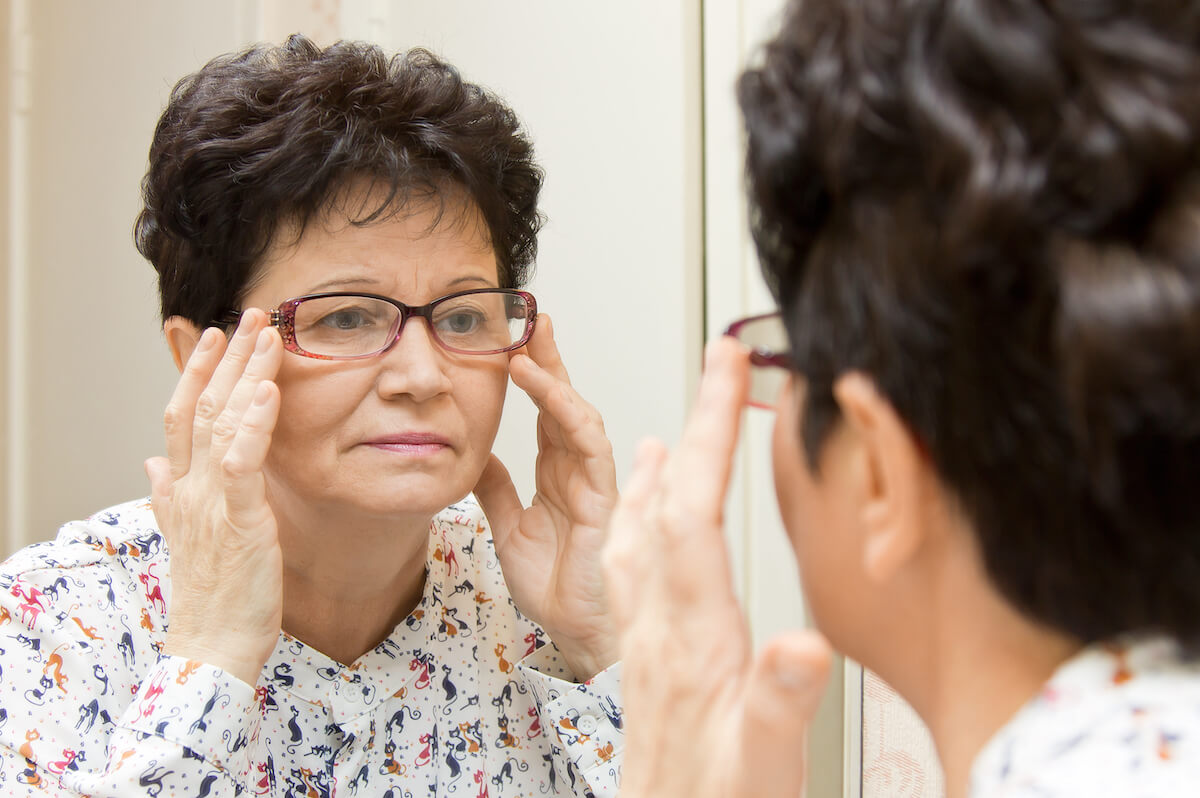
Our vision can be something that we take for granted. We can often forget to appreciate how incredible the power of sight is when we’re reading a book, watching our grandchildren play, or looking out at a beautiful landscape of mountains or oceans. However, as soon as our vision begins to fade or lose some of its sharpness, we are forced to realize how crucial this sense is to our overall health and well-being.
January is National Glaucoma Awareness Month, established to raise awareness about “the sneak thief of sight.” With three million and counting people affected by glaucoma in the United States, Brickmont Assisted Living believes it’s an important health issue to highlight.
With assisted living and memory care communities throughout the Atlanta, Georgia, area, Brickmont serves as a senior health resource for older adults and their families. In honor of Glaucoma Awareness Month, we’re sharing some information about glaucoma and the importance of maintaining our eye health as we age.
What is Glaucoma?
Glaucoma is the leading cause of irreversible blindness worldwide and the second leading cause of blindness, just behind Cataracts. Glaucoma is often called “the sneak thief of sight” because there are no signs or symptoms for many people—in fact, over 40% of vision can be lost without a person noticing.
Over time though, signs of late-stage glaucoma may include blind spots in peripheral vision, tunnel vision, and sometimes migraines or eye pain. Unfortunately, the damage and vision loss associated with glaucoma is permanent, which is why this stealthy disease is so serious.
Who Gets Glaucoma?
Anyone can get glaucoma, but it is most prevalent in those over 60 [years old], Black or Hispanic, or have a family history of the disease. However, the aging population of the U.S. combined with the asymptomatic nature of the condition could result in a large increase of glaucoma and related blindness in the future. Because of this, it’s essential to raise awareness about eye health and vision preservation.
While there is no cure for glaucoma, there are several preventative measures you can take to both detect it early and reduce your risk.
Preventing Vision Loss
Know Your History
If you fall into the high-risk category, including having a family history, it’s important to get examined regularly for glaucoma. Eye doctors can quickly screen for glaucoma using a simple dilation exam. Being aware of any instances of family history, including parents, grandparents, or siblings, can aid in early detection and treatment.
Regular Eye Exams
Even if you aren’t considered high-risk or aware of any family history, getting regular eye exams is vital in detecting glaucoma and protecting eye health. Depending on your overall health and eye wellness, it’s recommended to get an eye exam every one to two years. As you get older, you can also regularly get the dilation exam that detects glaucoma.
Protect Your Eyes
Physically protecting your eyes is also essential in preventing surface injuries and diseases like glaucoma. Always wear protective eyewear when playing sports, swimming, working with tools, or doing yard work. It’s also important to protect your eyes from harmful UV rays by wearing sunglasses when outdoors.
Maintain Overall Health
Another risk factor for glaucoma is having diabetes or high blood pressure, so being proactive in leading a healthier lifestyle can be beneficial in reducing your risk. Eating well, exercising regularly, and getting enough sleep are critical steps in maintaining overall health and body weight.
Seeing Eye-To-Eye With Eye Health
While January is National Glaucoma Awareness Month, it can be valuable to understand other common eye conditions and diseases. Cataracts are the leading cause of vision loss in the U.S., affecting more than 20 million Americans. Fortunately, a cataract can typically be treated with lifestyle changes or removed with surgery. Other common eye conditions can include:
- Age-related macular degeneration
- Retinal detachments
- Refractive errors (such as near-sightedness and farsightedness)
Most of these conditions are manageable or even treatable with a healthy lifestyle and regular eye screenings.
Healthy Living at Brickmont
At Brickmont Assisted Living, our assisted living and memory care communities throughout Atlanta, Georgia, are dedicated to ensuring the health and wellness of our residents and guests. We offer nutritious meals, fitness activities, and transportation to medical appointments. Our care team focuses on each resident, creating customized care plans to cater to each person’s unique needs.
Here at Brickmont, we promote overall health, wellness, and happiness. For more information on our assisted living communities and commitment to resident health, we invite you to visit our website today!




.png)